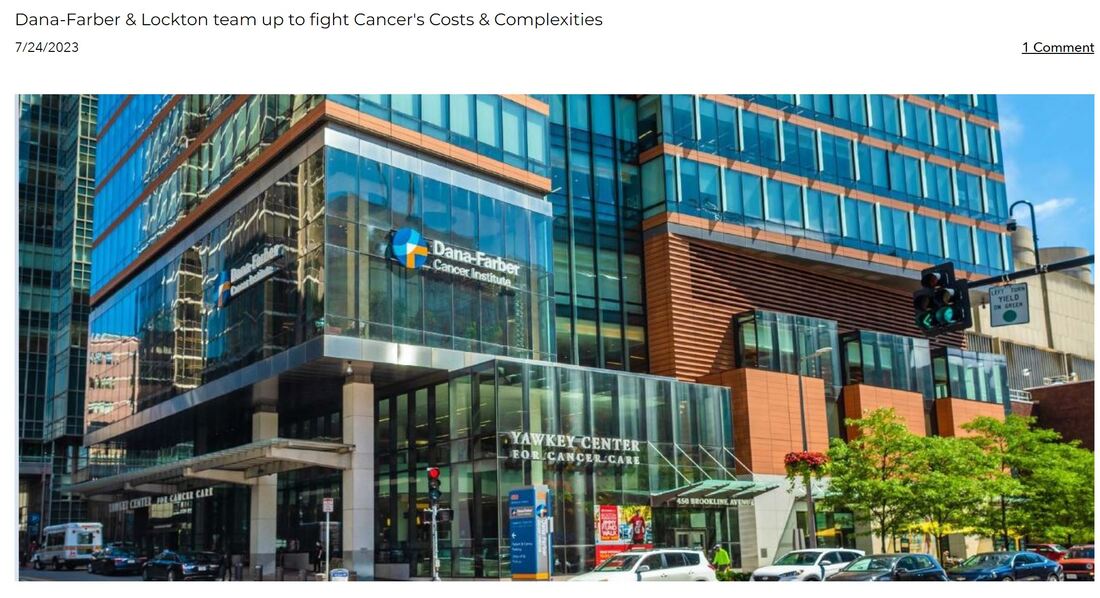 On February 15th, NEEBC orchestrated the region's first-ever employer focused Oncology Symposium, hosted at the Dana-Farber Cancer Institute in their Jimmy Fund Auditorium. The sold out event provided employers actionable insights to promote early detection and treatment, reduce oncology costs and how to best support employees, families and caregivers on their cancer journeys. Leading experts discussed how organizations navigate the complex world of oncology care and focus on the ever-evolving world of oncology benefits:
As cancer rates continue to rise, it’s important to remember that employees are increasingly concerned about cancer. This event was a learning opportunity for employers to increase understanding so that they can make a difference in cancer care for their workforce. Some of the survey feedback on the event was:
Some key takeaways for the Symposium are The Critical Importance of Early Detection in Cancer Treatment The discussion underscored the stark difference in survivability rates between early and late-stage cancer diagnoses, highlighting colon cancer as a case study where Stage 1 survival rates are at 91%, compared to only 13-14% for Stage 4. The panel noted that currently, only four types of cancers have approved and reliable screenings (colon, breast, cervical, and lung), leaving a significant gap as 72% of cancers do not have early detection tests. Further discussion centered on emerging technologies, like DNA-based blood and urine tests, that aim to fill this gap, offering hope for early detection across more types of cancer. The discussion around the FDA's breakthrough designation for Grail and the focus on high specificity to reduce false positives in testing are part of the efforts to improve early detection. The Evolution of Cancer Care: From One-Size-Fits-All to Personalized Treatment
A significant shift over the past 30 years has occurred from essentially treating all cancer patients with the similar standardized protocols to recognizing and addressing the unique cancer journey of each patient. Advancements in precision medicine, integrated support such as AccessHope and leading technology testing such as Grail, are enabling more personalized treatment plans that consider the patient's age, comorbidities, and other characteristics. The integration of these advanced testing methods with patient care, including the provision of onsite testing and screening, reflects a broader trend towards a more tailored approach to cancer treatment. The importance of second opinions for accurate diagnosis and the role of employer support in promoting a culture of prevention and early detection could provide valuable insights into how cancer care is becoming more patient-centered was also discussed. The Role of Employers and Communities in Supporting Cancer Care and Prevention There are various ways employers and communities are stepping up to support cancer care and prevention. This includes promoting a culture of prevention through lifestyle changes, providing access to advanced screening technologies like Grail, and creating supportive environments for employees with cancer. The story of the City of Portland FD shared their proactive approach to bridging the gap between testing and insurance coverage including the story of Patient #51 whose lung cancer was discovered at an early stage, underwent lifesaving treatment and implemented life extending protocols. His story was a big morale lift and energized the firefighters to get tested. Elizabeth Arnold of Latham & Watkins talked about creating a culture of sharing and well-being within the workplace and how organizational and community support can make a significant difference in cancer care outcomes. It’s important to remove stigma, ensure broad access to resources, and the critical role of partnerships in enhancing cancer care and support systems. Over the past few years, across Lockton’s clients, cancer has remained as a top health condition and leading cost driver holding the dubious distinction as the costliest condition since 2010. Some more sobering statistics
Lockton has identified an opportunity to reduce excess cost and improve outcomes in highly complex clinical situations by opening access to world class subspecialists in niche areas to members in need on our clients’ health plans. Lockton has established streamlined direct referral relationships with some of the country's top institutions (including Dana-Farber) to facilitate reviews of cases where members appear to be having difficulty getting the right diagnoses and/or best-fit treatment recommendations By establishing a Lockton-wide program, we can make these services available to clients across our book of business regardless of size and eliminate the need for client-specific contracts and processes. The result is a reduction in diagnostic delays and the elimination of unnecessary testing and ineffective therapies. About Dana-Farber Cancer Institute
Direct Connect is a FREE program from Dana-Farber and will work to provide exceptional cancer care no matter your zip code (nationwide plus 130 countries) by offering your employees streamlined access to Dana-Farber’s world-class cancer care and early cancer detection and intervention services. On June 20, 2023, Dana-Farber hosted Lockton as well as invited guests to learn about how we are partnering to better manage complex cancer cases. You can watch the event or read a summary here or click the image below.
0 Comments
Leave a Reply. |
AuthorMike Smith - trying to put my history degree to good use through research and writing . Mom would be proud but she still wanted me to study business. CategoriesArchives
June 2024
Categories |

 RSS Feed
RSS Feed